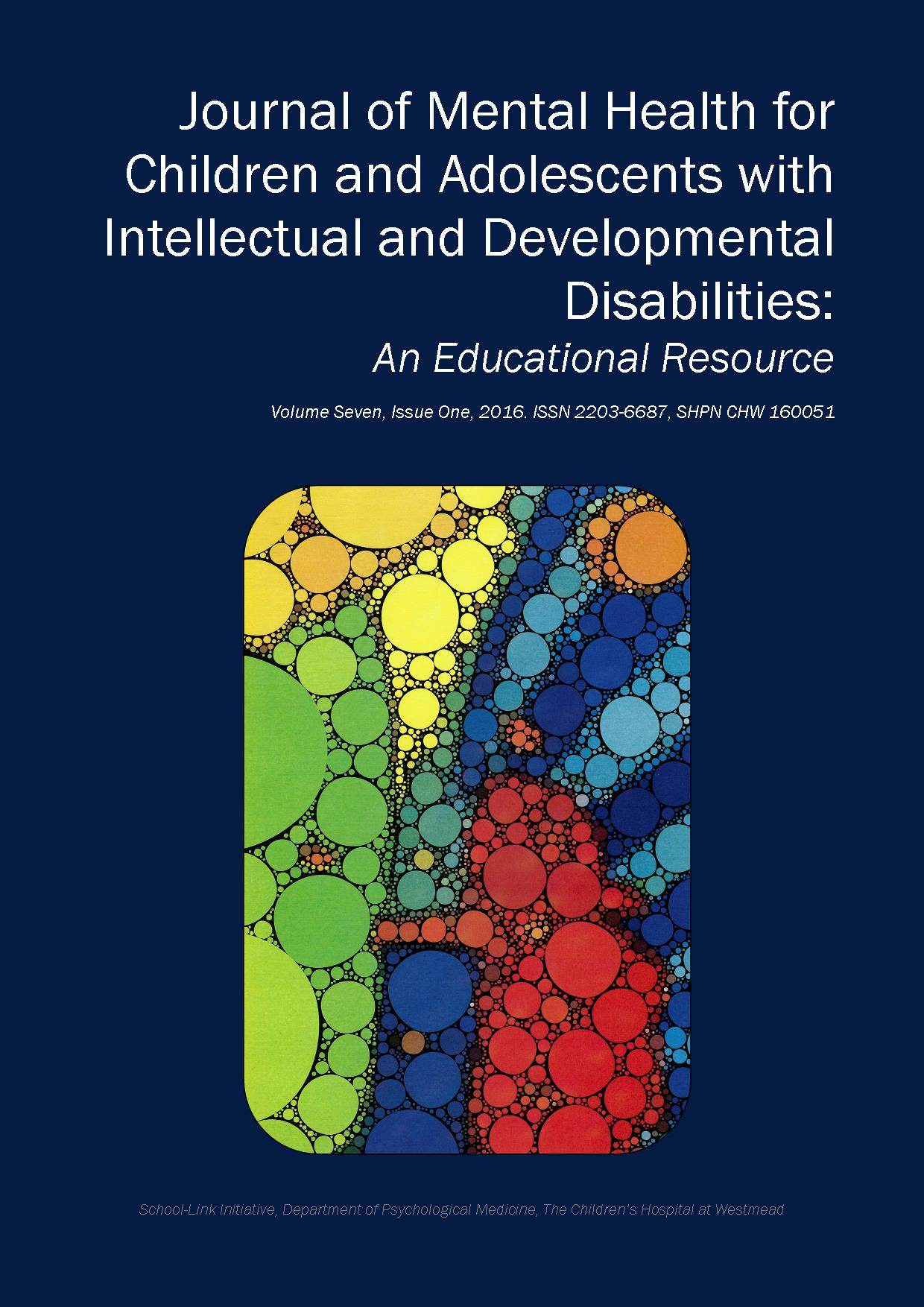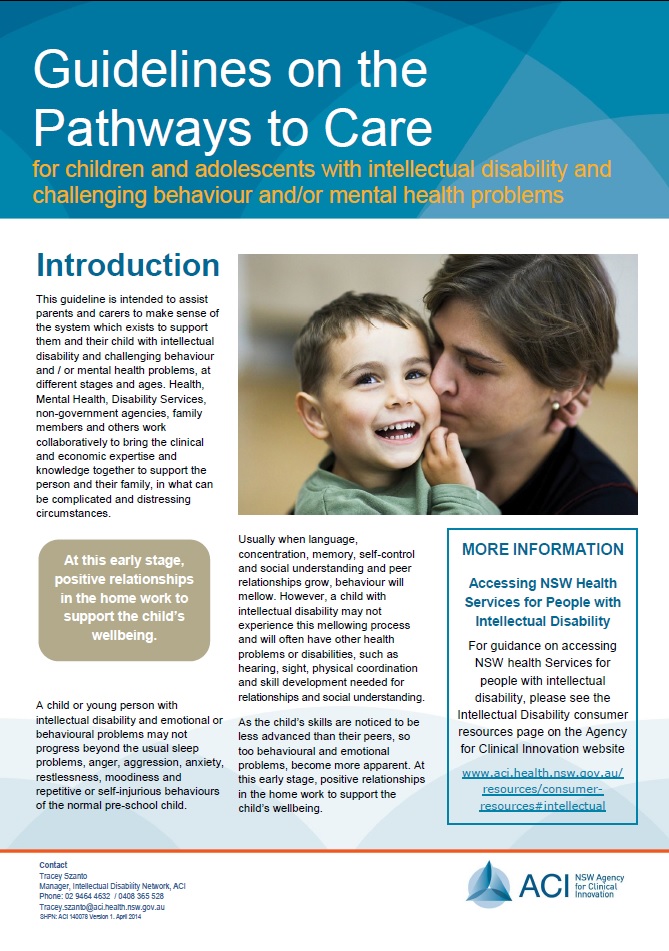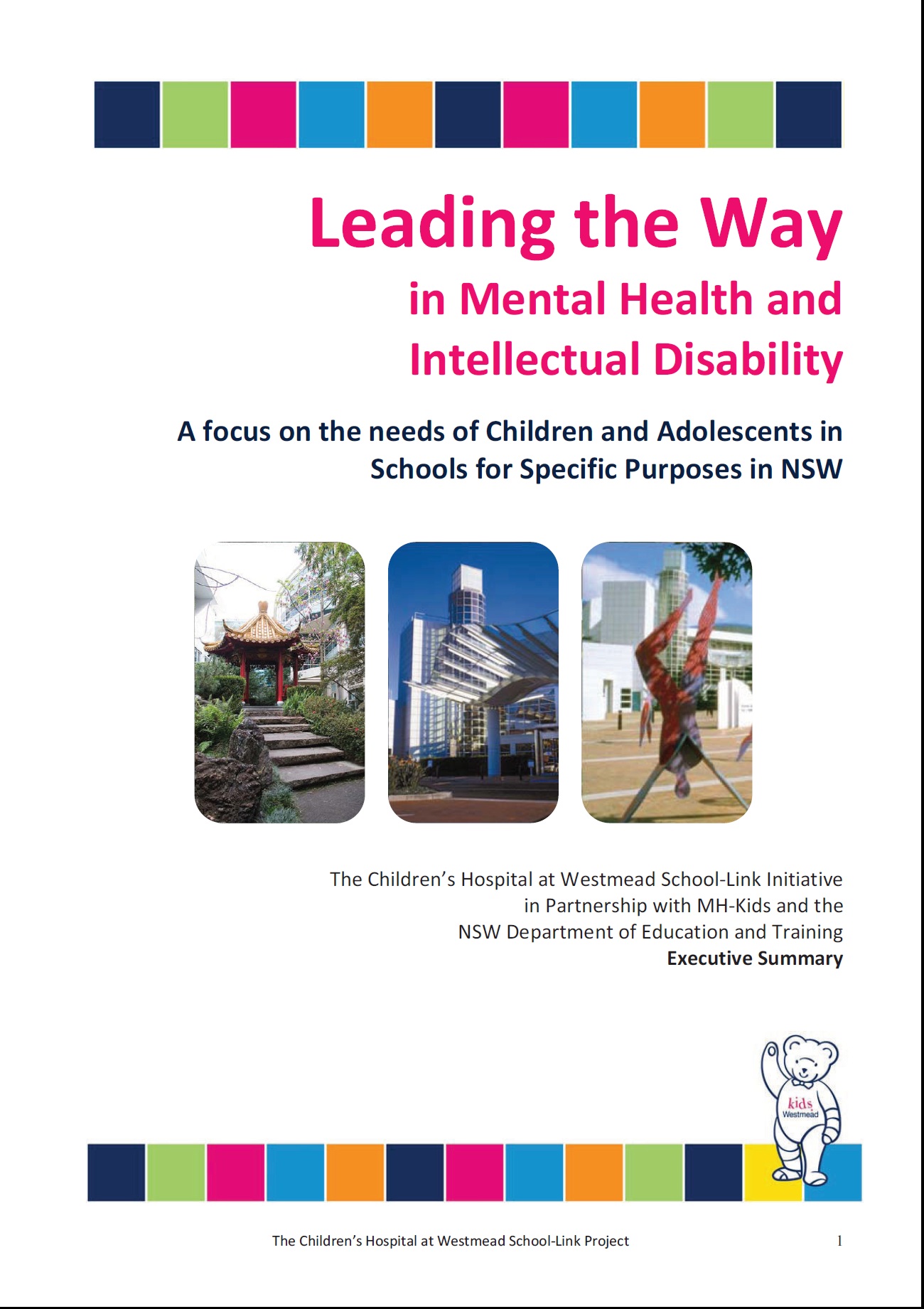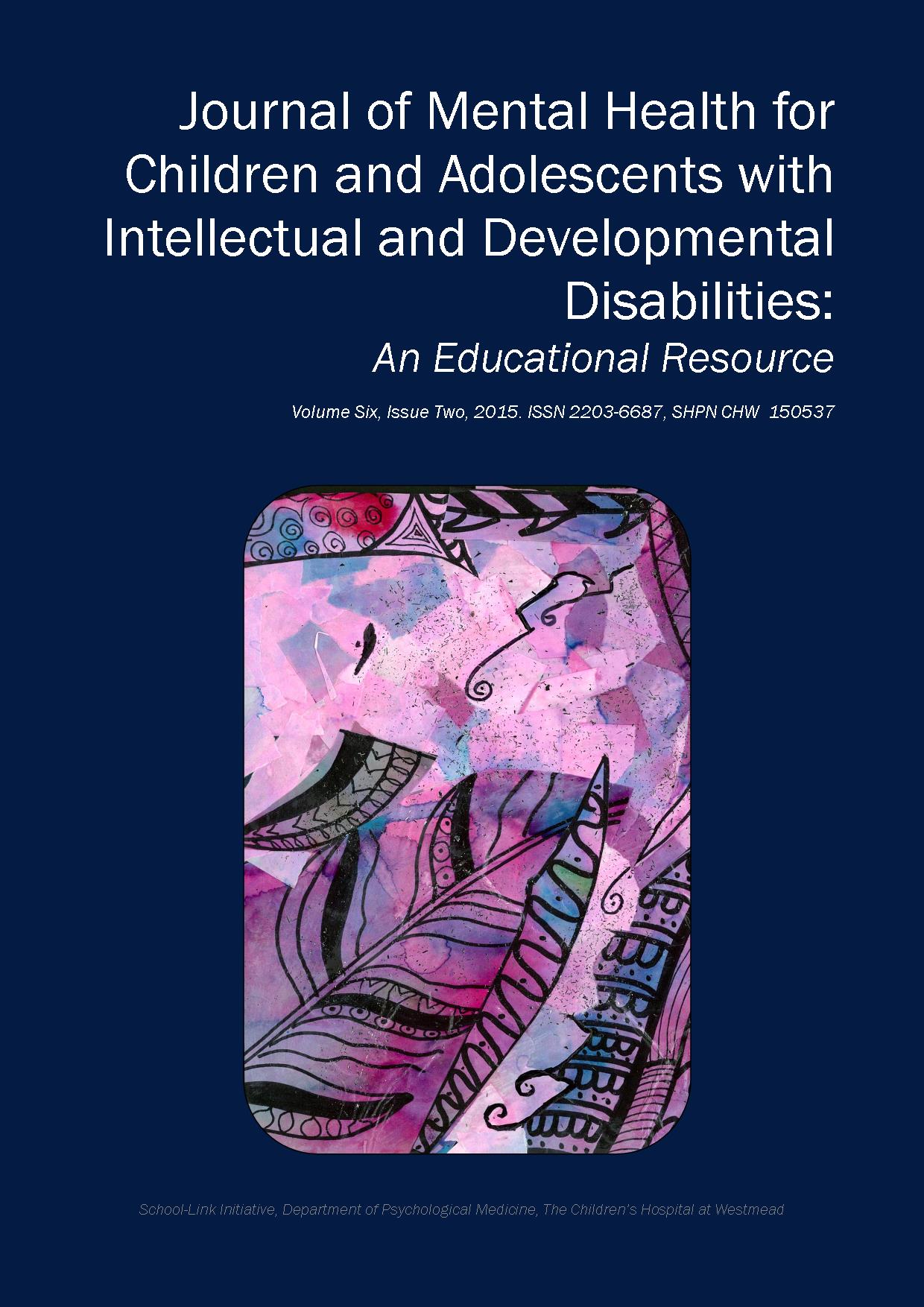Latest Journal Now Available
 Wednesday, February 17, 2016 at 12:09PM
Wednesday, February 17, 2016 at 12:09PM  The latest Mental Health of Children and Young People with developmental and Intellectual Disabilities is now available. Highlights include:
The latest Mental Health of Children and Young People with developmental and Intellectual Disabilities is now available. Highlights include:
*Violence in children and adolescents with an intellectual disability and the importance of safety by David Dossetor.
*Matthews’ story by Janine and Leonard.
*Responding to sexual behaviours of children and young people with an intellectual disability by Deborah Corfield and Lesley Whatson.
*Knowledge is light: an interview with Sue Foley.
*The medicine cabinet: Anxiety treatment when SSRI's fail by Judy Longworth.
*Current models of health service delivery for people with intellectual disability by Gianfranco Giuntoli, BJ Newton and Karen R. Fisher.
 Jodie Caruana | Comments Off |
Jodie Caruana | Comments Off | 







